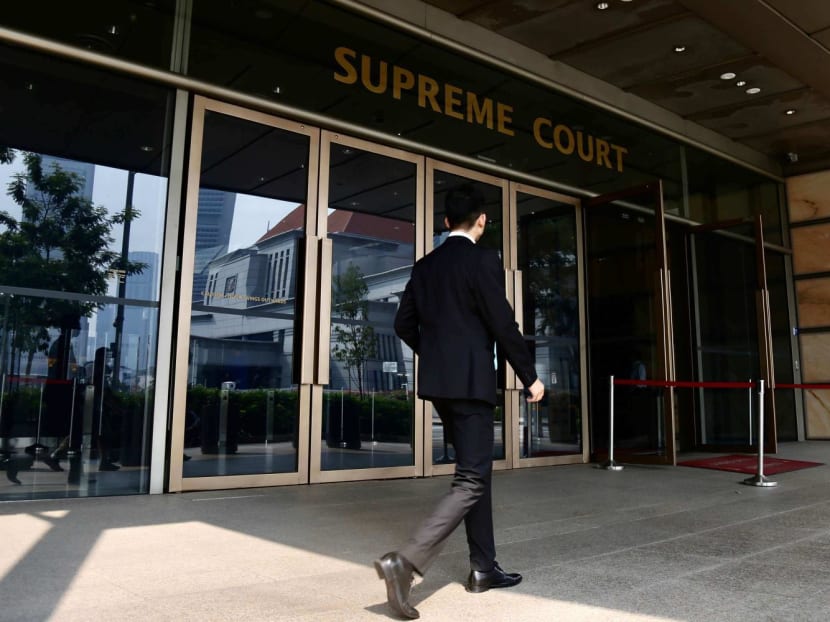Chief Justice rejects Bar exam cheat's bid to seal legal documents, citing need for 'open justice'
SINGAPORE — Bar exam cheat Leon Tay Quan Li, who last month apologised for his actions and withdrew his application to be called to the Bar, has failed in a bid to have the documents in his legal case sealed from public view on mental health and other grounds.

- Mr Leon Tay Quan Li, 26, had applied for the courts to seal the documents for his case
- Chief Justice Sundaresh Menon dismissed this request
- He said that it would be a departure from the principle of open justice
- The judge said medical evidence intended to show Mr Tay could suffer a severe psychiatric reaction from publicity over the case was "sparse"
SINGAPORE — Bar exam cheat Leon Tay Quan Li, who last month apologised for his actions and withdrew his application to be called to the Bar, has failed in a bid to have the documents in his legal case sealed from public view on mental health and other grounds.
Mr Tay, 26, had asked to have the documents sealed on the grounds that the public had no interest in seeing them given he was not proceeding to apply to be called to the Bar, and because naming him publicly could trigger a severe psychiatric reaction.
However, in reasons published on Monday (June 6), Chief Justice Sundaresh Menon noted the key principle of open justice, and said medical evidence presented in court relating to Mr Tay "fell far short" of justifying a departure from this principle.
The judge gave his original decision in an oral judgement at the time of the application in early May. Monday's published judgement gives the full reasons for the decision.
In his published reasons, Chief Justice Menon noted that prior to this application, Mr Tay had also written to the Supreme Court Registry on April 20 requesting that his personal particulars be redacted so that it would not be accessible through the eLitigation platform, which allows court documents to be filed online.
The judge said Mr Tay asserted that he suffered from a mental health condition which he claimed had been exacerbated by his anxiety over the public exposure and the subsequent outcry over the cheating cases, especially on social media.
Mr Tay had produced a medical memo from the National University of Singapore which suggested that the disclosure of his name “could trigger a severe psychiatric reaction”, said Chief Justice Menon.
In April, news emerged that 11 trainee lawyers had cheated in the Part B Bar exams in 2020, which graduates have to pass in order to be qualified to practise law in Singapore.
Mr Tay was found to have colluded with another candidate, Ms Lynn Kuek Yi Ting, to cheat in the exam.
Last month, he wrote a letter of apology for his “inexcusable misconduct”.
Chief Justice Menon said on Monday that he had dismissed Mr Tay’s latest application as it would be a “departure from the principle of open justice”.
Open justice generally refers to a legal rule which requires the courts to conduct their proceedings in public.
“The open justice principle is especially important where, as is the case here, the proceedings concern the legal profession; admissions to the Bar are matters of public interest, given the role of the legal profession in upholding the justice system,” he said.
“The open justice principle is especially important where, as is the case here, the proceedings concern the legal profession; admissions to the Bar are matters of public interest, given the role of the legal profession in upholding the justice system.Chief Justice Sundaresh Menon”
Still, he said an exception can be made in cases where the publication of a litigant’s name would “pose imminent risks or danger” to the individual, or if the sealing and redaction order was necessary in order to spare the litigant from imminent harm.
On the medical memo, Chief Justice Menon described it as “sparse”, and that it was not longer than half a page.
He added that it did not meet the criteria expected of a forensic psychiatric report.
“Our courts have emphasised time and again that an expert report, including a psychiatric report, is worth nothing if it provides conclusions without presenting the underlying evidence and the analytical process by which and the reasons upon which these conclusions are reached,” he said.
Nevertheless, the Chief Justice said he was granting Mr Tay’s application to withdraw from his bid to be called to the Bar.
Among the conditions that Mr Tay is required to undertake is one of not bringing a fresh application for admission to the Bar in Singapore or elsewhere for a period of five years, said Chief Justice Menon.
“Given the issues Leon needed to work on, I considered that this would afford him a sufficient period within which he could show himself to be a fit and proper person,” he said.











